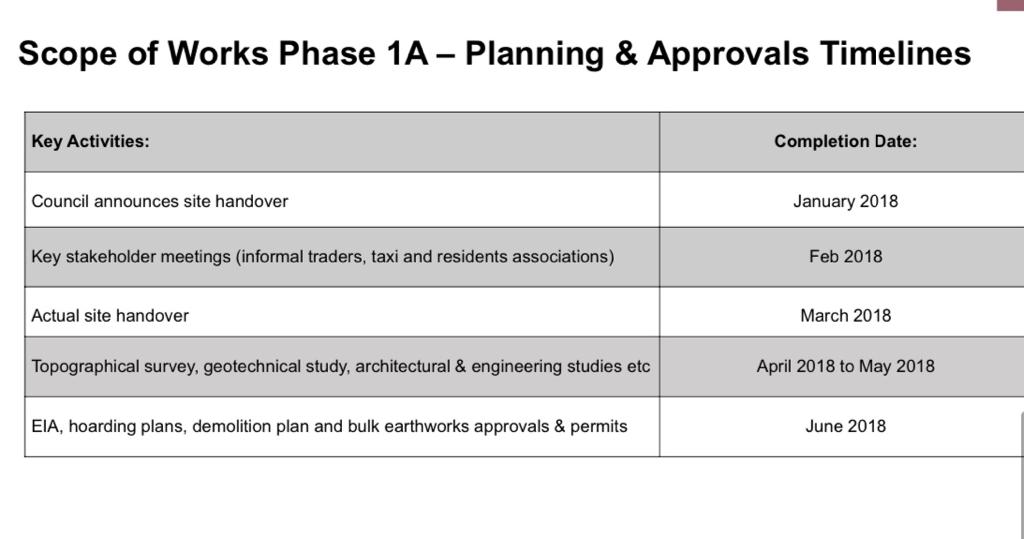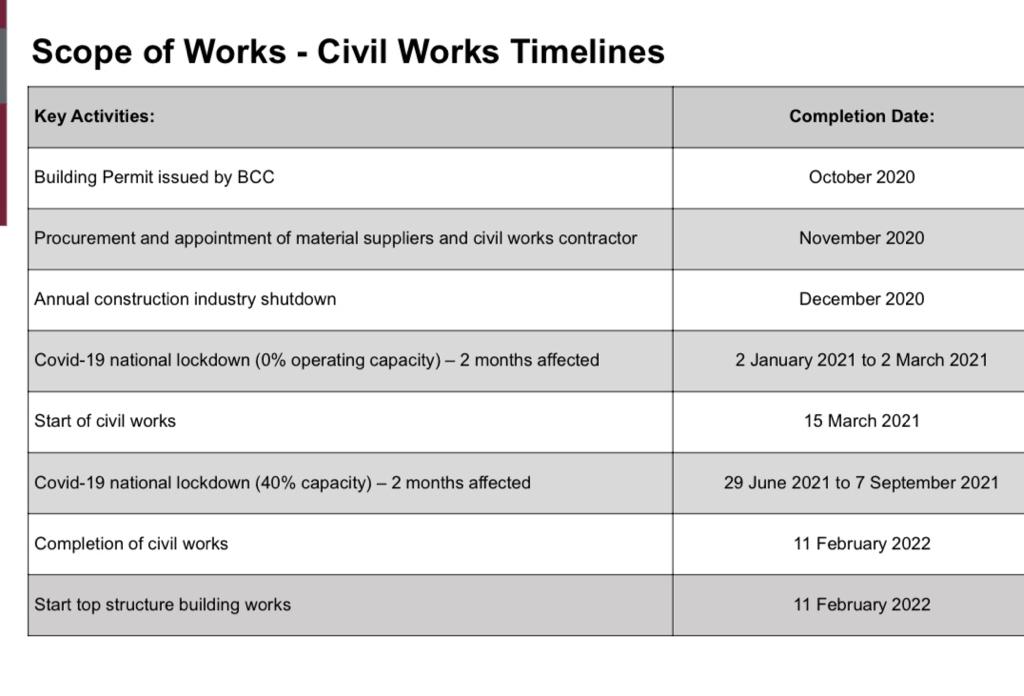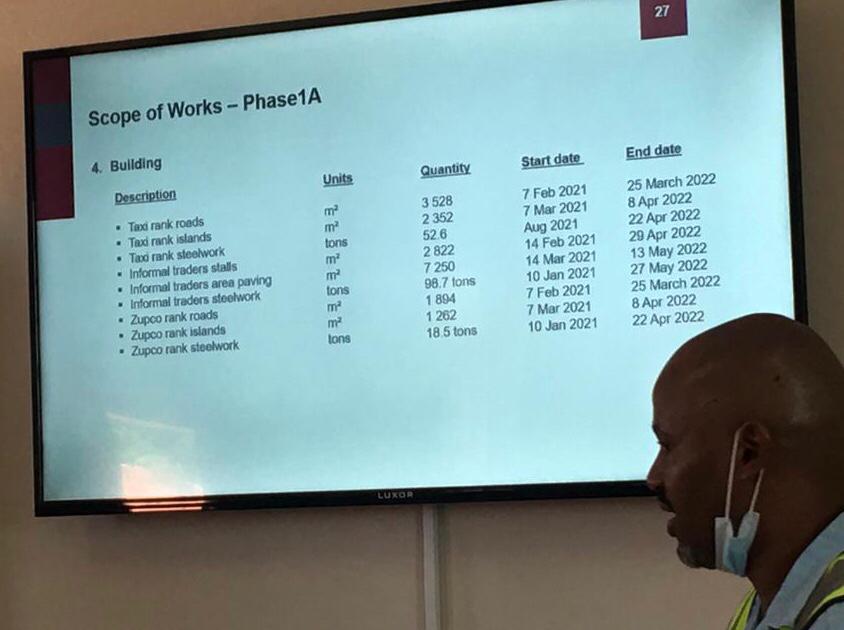South African property developer, Terracotta Trading (Private) Limited which was contracted to develop Egodini Mall in Bulawayo says they will hand over the taxi rank to the Bulawayo City Council (BCC) in April to allow buses and taxis to move in while they complete the other sections of the project.
In 2016, the BCC awarded Terracotta a tender for the redevelopment of the Basch Street bus terminus popularly known as Egodini under a Build Operate and Transfer (BOT) facility.
However, since then, the multi-million dollar project has failed to take off leading to both residents and councillors demanding the termination of the deal.
In a tour of the construction site on Friday, some workers were on-site with the contractor acknowledging that it was behind schedule.

So far Terracotta has done 70 percent of the development’s project stages, divided as planning and approvals (10 percent), enabling works (35 percent) and civil works (25 percent).
The contractor is yet to construct the top structures (25 percent) and commission the project (five percent).

Terracotta director, Thulani Moyo, admitted as contractors they took “very long” and were “probably behind by four months” in terms of their programme.

He pointed out civil works were intensive and they did not want to rush because the underground works were an important part of the project.

Moyo also revealed that in mid-April they would have completed the taxi rank to allow the public transporters to start operating from there.
“By the end of this month, we would have finished at least a side for taxi rank. We will then start by putting taxi rank roads, which you will see coming up at the beginning of February – the curve and the actual road themselves. From there once they have sealed that, we anticipate brickwork for the informal traders’ stalls. Those should actually start coming up, it’s long-delayed but we had to get the underground stuff right.”
Moyo acknowledged there were deadlines set before but were unable to meet them for the above reasons but highlighted that top construction was easier as suppliers of overground material, such as bricks, cement, aggregates, were more readily available.
“The technical nature of the work that is now involved,which is overground construction, is much more manageable than underground construction. You can walk into a shop and say I need 500 000 bricks, they will say, ‘pay now, and we will deliver in two days.’ You cannot really walk into a shop and say I need two kilometres of stormwater, they will say, ‘give us a few months because of the nature of the product,” he said.
Moyo indicated the Covid-19 lockdown stopped their work and they only resumed construction with 40 percent capacity after applying for permission from the government.
“There were delays by suppliers in delivering materials or they delivered materials in the wrong sequence. Since we wanted to support local businesses, sometimes we had to come in and supply foreign currency so the supplier could import materials but we said to ourselves we can take the flak (blame) for the delays,” he said.
Skill was also a critical factor involved in the construction, Moyo noted.
“There’s a wide range of people experienced in bricklaying compared to laying the stormwater pipe. Remember when you lay a stormwater pipe, it’s not only about laying the pipe, you have to lay it at the agreed angle designed by the engineer to make sure when it rains, water does not sit but actually flows into the storm channel,” he said.
Bulawayo Town Clerk, Christopher Dube, said Terracotta had to stick to its new timelines otherwise they too would feel the pressure.
“We were under immense pressure. Stakeholders – transport companies, vendors, residents and indeed the government were asking what is going on,” he said noting as a partner they could not disclose information as they were bound by contractual obligations.
“It was very difficult to disclose information when people asked because we are bound by terms and conditions. We cannot just give any information as and when people want it.”
Dube said the council requested Terracotta to engage the media, as journalists were also putting pressure for answers.
“We have said to them please talk to the media. We don’t want a situation where the media puts too much pressure on us and when we refer them to you, as per our understanding that we don’t have to talk about the development, you fail to respond. That puts pressure on us but I can assure you the contractor is here and is going to stick to his timings,” he said.


The project is long over due .It’s sad that the order we found whilst growing up has long since disappeared and our children are now growing up in a chaotic city 😢